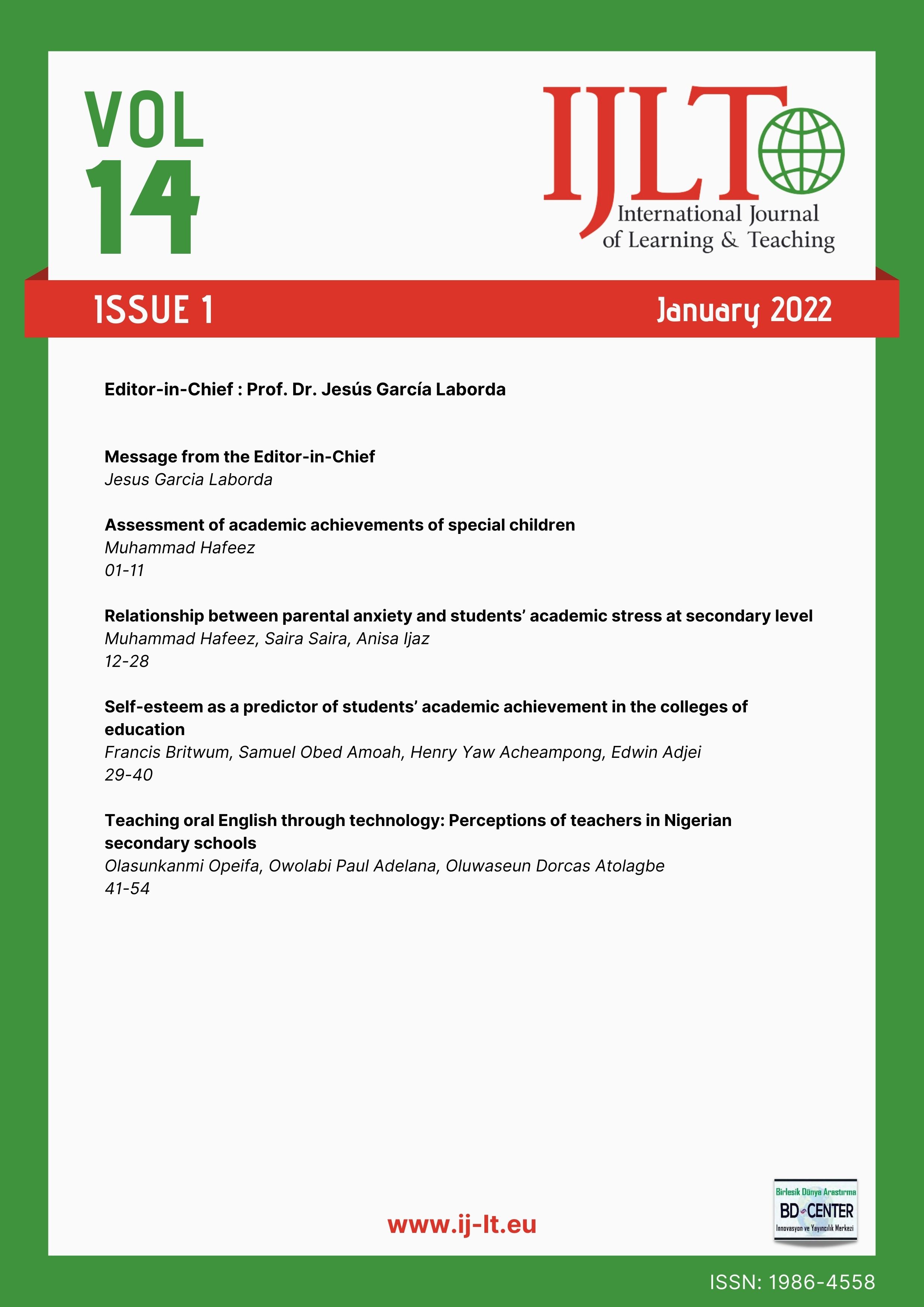Teaching oral English through technology: Perceptions of teachers in Nigerian secondary schools
Main Article Content
Abstract
English Language learners in Nigeria mostly find Oral English difficult to understand but technology is now supportive. However, being a dynamic language, the English Language is constantly evolving and so are the technologies used in its teaching. This study, therefore, intends to re-examine teachers’ current perceptions towards technology usage in teaching Oral English. The study was descriptive. The sample comprised 215 teachers to whom an instrument titled “Teachers’ Current Perceptions of Teaching Oral English through Technology Questionnaire (TCPTOETQ)”, was administered. Six research questions were formulated and answered using Mean, Standard Deviation, One-Way ANOVA, and t-test. The result showed that the teachers currently have positive perceptions towards the use of technologies in teaching Oral English. It was therefore recommended that stakeholders in education provide continuous training for English Language teachers for continuous adaptation to the changing landscapes of technology usage in teaching Oral English.
Keywords: English Teachers; Oral English; Perceptions Technology; Secondary Schools; Nigeria.
Downloads
Article Details

This work is licensed under a Creative Commons Attribution 4.0 International License.
Authors who publish with this journal agree to the following terms:
- Authors retain copyright and grant the journal right of first publication with the work simultaneously licensed under a Creative Commons Attribution License that allows others to share the work with an acknowledgement of the work's authorship and initial publication in this journal.
- Authors are able to enter into separate, additional contractual arrangements for the non-exclusive distribution of the journal's published version of the work (e.g., post it to an institutional repository or publish it in a book), with an acknowledgement of its initial publication in this journal.
- Authors are permitted and encouraged to post their work online (e.g., in institutional repositories or on their website) prior to and during the submission process, as it can lead to productive exchanges, as well as earlier and greater citation of published work (SeeThe Effect of Open Access).
